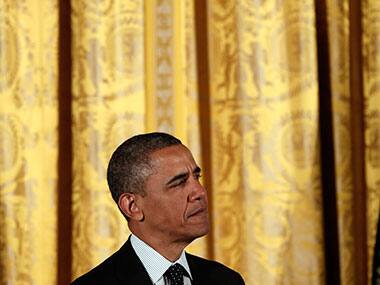New York: The Obama administration announced a set of executive orders and policy reforms on Tuesday designed to deal with “patent trolls.” Trolls employ no engineers and produce no products. Instead, they amass patents and focus on constant litigation.
Unfortunately, many patent-holding companies with no intention of ever releasing products have made a business model out of suing other companies for patent infringement. To deter the avalanche of patent-infringement lawsuits, Obama’s executive orders direct the Patent and Trademark Office (USTPO) to require the owner of a patent to be clearly identified.
According to US media, Intellectual Ventures, a notorious patent troll has some 1,000 shell companies asserting patent rights. The company engages in constant patent litigation, and many tech companies have accused it of stifling innovation. The USPTO will now require that patent-holding companies disclose who really stands to benefit from a lawsuit and identify the ultimate patent holder for each application.
[caption id=“attachment_842901” align=“alignleft” width=“380”]
 Barack Obama in this file photo. Reuters[/caption]
Barack Obama in this file photo. Reuters[/caption]
Obama is also directing the patent office to train examiners to scrutinise applications for overly broad patent claims. Amazon famously tried to patent the “one-click-to-buy” button. One patent troll, Acacia Research, claimed ownership of sending medical images over the Internet. It actually served notice of a lawsuit in an out-of-the-way Texas court to GE Healthcare, Siemens, and Philips, all of whom produce picture archival and communications systems or PACS.
America can take a leaf out of India’s patent playbook
Headlines in the US trumpeted the Indian Supreme Court’s decision in May to deny a new patent for the cancer drug Gleevec as an attack on intellectual property rights and a win for patients in need of cheap drugs. But those headlines missed a core point about what should be patentable.
Impact Shorts
More Shorts“What the ruling actually demonstrates is that India has set a high bar for determining what is “innovative.” The United States could learn a thing or two from India - particularly since Washington’s excessively liberal patent system led to a ridiculous spat last year between Samsung and Apple over whether a rectangular cellphone screen with rounded corners was patentable,” wrote Swaminathan S Anklesaria Aiyar.
Novartis patented Gleevec in 1993, a time when India did not grant product patents for drugs. After Indian law changed to allow them in 2005, Novartis came up with a variation of Gleevec, claiming this improved the drug’s effectiveness and so qualified for a patent. The Indian Patents Office rightly rejected the claim as insufficiently innovative. Other appellate bodies and the Supreme Court agreed.
America is finally waking up to its patent system’s problems. A series of rulings from the pro-patent Federal Circuit appeals court during the 1980s and 1990s made patents too easy to get. As a result, small inventors and big firms rushed to file applications that would have been rejected under earlier legal standards.
“Today, we’re suffering a collective hangover for that patenting binge: hundreds of thousands of patents that probably shouldn’t have been granted. The problem is made worse by rules that give patent holders too much bargaining power against accused infringers,” said The Washington Post.
President Obama is now asking Congress to pass legislation that will right some of the problems of the past and give courts broader discretion to impose sanctions on litigants who file lawsuits deemed abusive by judges. He would also like Congress to change certain International Trade Commission legal standards and ensure that the agency has flexibility in hiring its judges.
Patents exist for a good reason, but on a Google Hangout in February, Obama pointed out that patent trolls abuse and exploit a patent system that was designed to protect inventions.
“They don’t actually produce anything themselves,” Obama said. “They’re just trying to essentially leverage and hijack somebody else’s idea and see if they can extort some money out of them.”
)